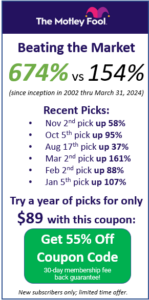There are many stock market myths. Here are a few of our favorites that you might like to add to the collection:
Fallen Angels Rise
Many people like the idea of buying at the 52 week low as it leaves nowhere to go but up. Unfortunately, this myth of buying on price is a recipe for disaster. Many professional investors call this catching a falling knife. It is always possible for a stock’s price to continue to fall. Always look for value. Most professionals would prefer to buy at a new high than a new low.
What Goes Up Must Come Down
Lets look at a well known example. Was Berkshire Hathaway (BRKb) expensive at $6,000 per share? How about at $10,000 per share? Who could have ever imagined that this stock would exceed $70,000 per share? Inflationary alone would help stocks continued upward momentum.
Stock Market Investing is the same as Gambling
Many people go to Los Vegas and say that they are investing and get a higher return with craps than the stock market. In fact, this really depends on the strategy you use. If you listen to rumors and TV investment shows, the chance are that Vegas would be a better bet. On the other hand, vast fortunes have been made by those who use thoughtful investment strategies..
It requires advance training and college degrees.
Nothing could be further from the truth. It is equally easy for people using online resources and research as with college education. The best approach is using virtual trading to test strategies till you find a method that works.
You get what you pay for
There are 100s of investment strategists and salesmen that will try to tell you that you “get what you pay for” in the stock market. That if you pay higher fees for their advise, you will get better returns. Statistics show that eliminating the middle man significantly increases the rate of return for many investors. Understand what you are paying for and then decide if it is really worth it.
Pay-for-Performance.
Mutual fund companies charge high fees before you know what kind of return they are going to provide. Don’t pay to play if the mutual fund doesn’t perform. It is better to use no fee mutual funds or ETFs to achieve the same financial goals.
 Types of Cryptocurrency and Which Ones Are the Best to Get Into
Types of Cryptocurrency and Which Ones Are the Best to Get Into Using Spreadsheets – Calculating Your Daily Returns
Using Spreadsheets – Calculating Your Daily Returns Using Spreadsheets – Graphing
Using Spreadsheets – Graphing
